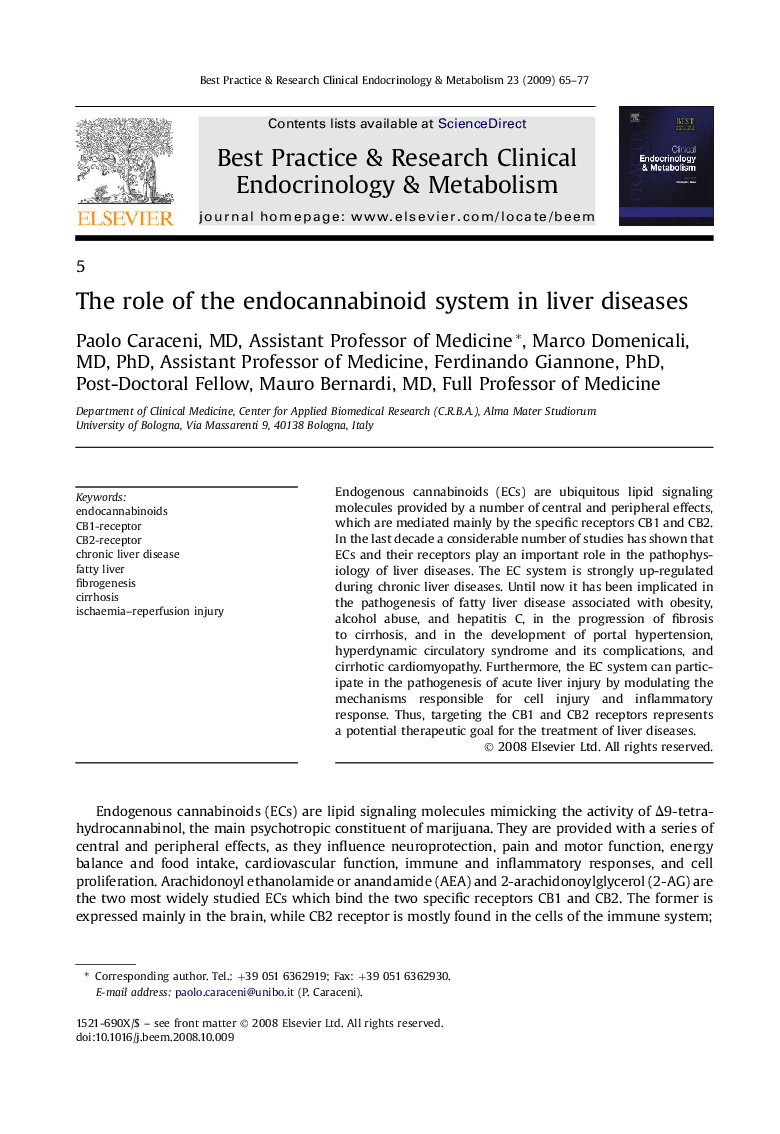| Article ID | Journal | Published Year | Pages | File Type |
|---|---|---|---|---|
| 2791824 | Best Practice & Research Clinical Endocrinology & Metabolism | 2009 | 13 Pages |
Endogenous cannabinoids (ECs) are ubiquitous lipid signaling molecules provided by a number of central and peripheral effects, which are mediated mainly by the specific receptors CB1 and CB2. In the last decade a considerable number of studies has shown that ECs and their receptors play an important role in the pathophysiology of liver diseases. The EC system is strongly up-regulated during chronic liver diseases. Until now it has been implicated in the pathogenesis of fatty liver disease associated with obesity, alcohol abuse, and hepatitis C, in the progression of fibrosis to cirrhosis, and in the development of portal hypertension, hyperdynamic circulatory syndrome and its complications, and cirrhotic cardiomyopathy. Furthermore, the EC system can participate in the pathogenesis of acute liver injury by modulating the mechanisms responsible for cell injury and inflammatory response. Thus, targeting the CB1 and CB2 receptors represents a potential therapeutic goal for the treatment of liver diseases.
